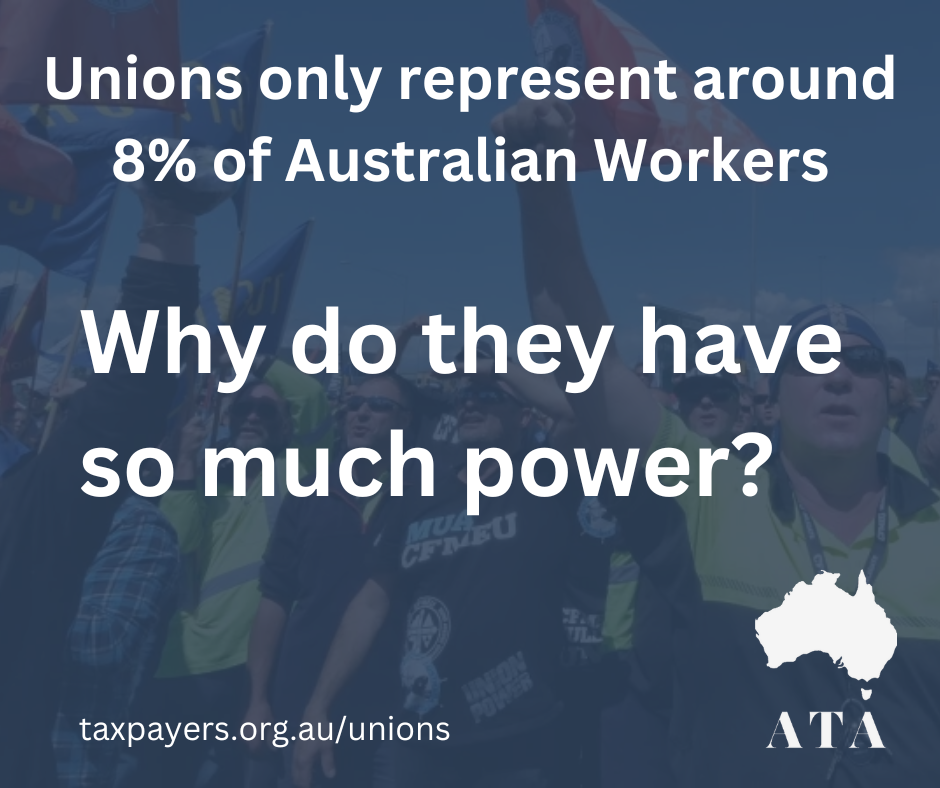Counting the cost of Unions
Amid the recent revelations that only 8% of Australia’s private-sector workforce belongs to a union, major unions such as the AWU have renewed their calls for union membership to be compulsory for Australian workers. Unions have long been a controversial topic in Australia, with many arguing that they hold too much power. Here are a few reasons why some believe this to be the case:
Influence over government policies: Unions have historically been a powerful lobbying force in Australia, and have been able to influence government policies in their favor. This can lead to policies that may not be in the best interests of the general population.
Power over employers: Unions have the ability to negotiate with employers on behalf of their members, and in some cases, have been able to secure wages and benefits that are higher than what non-unionized workers receive. This can create an uneven playing field for businesses and lead to economic inequality.
Restrictions on competition: Unions often push for regulations and laws that restrict competition in various industries. This can lead to higher prices for consumers and a lack of innovation in the marketplace.
Strike actions: Unions have the power to call for strikes, which can disrupt business operations and cause economic damage. In some cases, these strikes can be used as a tool of leverage to force employers to agree to demands that may not be reasonable.
It's important to note that unions play a vital role in protecting the rights and interests of workers. However, the power they wield must be balanced with the needs of businesses and the broader economy.
Sign up below to keep up to date with news that affects your bottom line.

